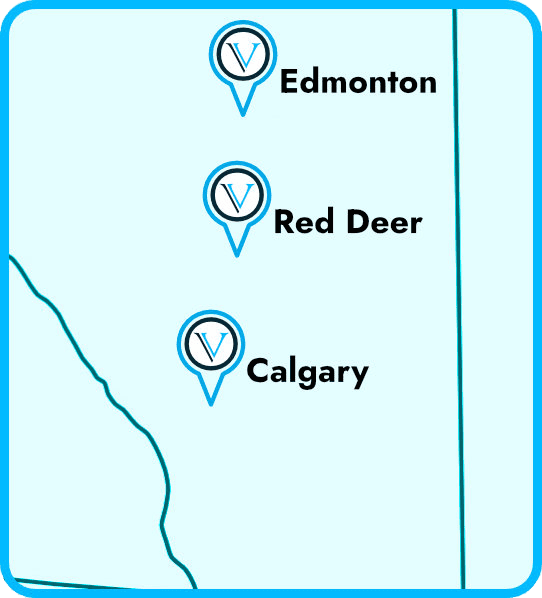
If you’re named as an executor of a will (or “personal representative” as it’s termed in Alberta), you have the responsibility to administer the estate of the deceased.This is no small undertaking as you will have a fiduciary duty to follow the terms of the will, ensure that the named beneficiaries receive their inheritance, and manage all the assets and liabilities of the estate.
If property forms part of the estate, your duty as the estate executor may involve selling real estate, such as the deceased person’s home. This can introduce extra complexities into the administration process.
A home often forms a sizable part of the estate and executors are often under significant pressure from beneficiaries to sell it. However, you must tread carefully if selling real estate is part of your responsibilities as executor.
The legal processes, such as probate, should not be seen as an obstruction to executing an estate — rather as a way to prevent missteps and protect you legally.
To prevent potential complications and litigation, executors of estates in Alberta may want to seek legal guidance from an experienced wills and estates lawyer.
Learn More → Mistakes Executors Make When Probating Estates in Alberta
What should the first steps be as the executor of a will in Alberta?
For all but the simplest of estates, an executor should review the will with an estate lawyer, who can advise of any potential complications and recommend the next steps to take as you prepare the paperwork for the probate process. A lawyer will help you identify all of the estate’s assets and liabilities, for instance.
Attempting to execute a will alone without the knowledge or prior experience of Alberta estate law is inadvisable and can cause conflicts with beneficiaries or legal issues.
What is Probate?
Probate is a court process that validates a will and officially appoints an executor to act on behalf of the estate.
Most wills in Alberta must pass probate before the personal representative of the deceased can begin settling debts and distributing the estate. However, small estates with only a little cash in assets may be able to bypass probate.
The probate process can take up to a year in Alberta, but it is generally completed in a few months, so it’s best to start as soon as practically possible after the death of the testator.
When is it possible to sell a home before probate after the death of the testator?
If a property is included in a will in Alberta, an executor must generally provide proof of authority (via probate) to act on behalf of the estate before transferring the property to his/her name and selling it.
It may be possible to speed up the sale of a house in certain circumstances, such as:
- A successful application for a limited grant of probate is made to the court, where a specific asset (the home) can be probated before the remainder of the estate (though this option may increase overall court and legal costs).
- A successful request is made to the court for an expedited probate process (this option is not usually possible without presenting a compelling reason).
- A tenancy-at-will agreement is made with the buyer, where the buyer can move into the home and pay rent to the estate before ownership is transferred (this may be a risky option as the court may decide that the home cannot be sold).
- Signing a grant of probate seller’s condition, making the contract conditional on the court granting probate. Legally, the condition states that the entire contract ceases to exist and after the grant of probate, the seller can waive the condition.
Why would an executor want to sell a home before probate?
A house is often the single biggest asset in an estate and beneficiaries may apply pressure to sell it quickly at a fair price. They want their inheritance.
A quick sale may also be preferable due to a generous offer from an impatient potential buyer, high running costs associated with the home (insurance, maintenance, utilities, condo costs, etc.) or a favorable real estate market.
The executor must distribute the estate as soon as possible after the death of the testator but attempting to sell a home before probate is generally inadvisable. Pressure to sell can present risks for executors and legal guidance may be required to complete the necessary processes and avoid missteps.
The risks of selling before probate
Even if an executor has the right to sell a home, there are significant risks associated with doing that before probate, including:
- A new will with different beneficiaries and executors is presented.
- The new will leaves the home to a family member, meaning that a sale goes against the wishes of the deceased.
- A family law contract or dower rights supersedes the will, meaning that the home should be the property of another individual.
- A beneficiary wants to receive the home as his/her share of the estate.
What if the will-maker was the joint owner of a property?
Generally, an executor can only manage real property on behalf of the deceased if the will-maker’s name was the sole name on the title or he/she owned a percentage of the interest in the property as a tenants-in-common arrangement.
If a home was jointly owned with a spouse, for instance, the entire property would automatically be transferred to the spouse’s name by right of survivorship (and no probate would be necessary).
What happens to homes after death if there is no will?
If someone dies intestate (without a will) in Alberta, there can be no probate process but the authority of the courts is still required before distribution of the estate can occur — including selling a property.
Any person who wishes to administer the estate must apply for a letter of administration from the court and follow Alberta’s intestacy laws for the distribution of the estate.
When selling a home after death, an administrator appointed by the court faces similar legal risks as a personal representative named in a will.
If you are the executor of a will and need to sell property, speak to an experienced wills and estates lawyer at Vest Estate Lawyers about your needs.

We currently have three offices across Alberta — Edmonton, Calgary, and Red Deer. However, we serve the entire province of Alberta. We also have the infrastructure to work with any of our clients virtually — even the furthest regions of Alberta.
Call us toll-free at 1-877-448-3131 to get routed to the best office for you or contact us online to schedule an appointment.
We also have a dedicated intake form to help you get the ball rolling. Our intake team will review your specific case and advise you on the next steps to take and what to expect moving forward.
Our offices are generally open 8:30 a.m.—5:00 p.m., Mon—Fri.


Colin Flynn
WILLS and ESTATES LAWYER
Colin is an estate lawyer practicing in the areas of Estate Litigation and Disputes. He emphasizes developing trusted relationships with his clients, ensuring they feel comfortable and at ease sharing the subtleties of their circumstances.

